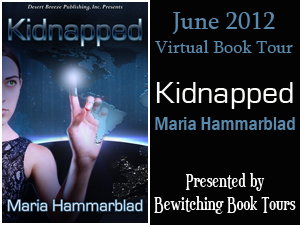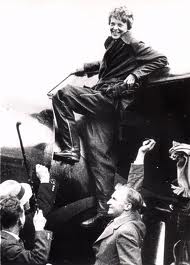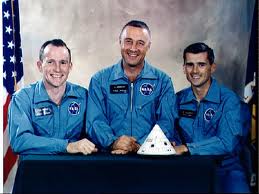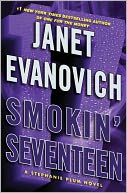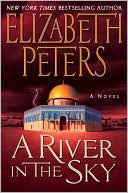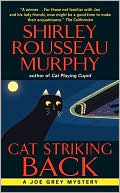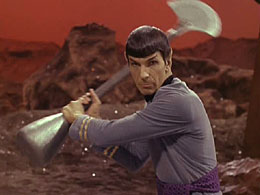
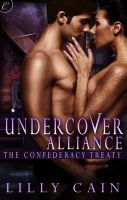 Lilly Cain is here to celebrate the release of the third book in her fascinating science fiction romance Confederacy Treaty series, Undercover Alliance (review here). Ms. Cain has visited Reading Reality before. Her guest post on “Writing and Loving the Alien” gave me a chance to re-read and review Alien Revealed, the first book in the Confederacy Treaty series, and take a look at The Naked Truth again as well.
Lilly Cain is here to celebrate the release of the third book in her fascinating science fiction romance Confederacy Treaty series, Undercover Alliance (review here). Ms. Cain has visited Reading Reality before. Her guest post on “Writing and Loving the Alien” gave me a chance to re-read and review Alien Revealed, the first book in the Confederacy Treaty series, and take a look at The Naked Truth again as well.
Take it away, Lilly!
So tell us a little bit about who Lilly Cain is when she’s not writing.
When I am not writing, I spend my time with my family—I have two daughters. I am a single mom, so I work hard writing and more recently, freelance editing. When playtime rolls around I like to relax by a campfire, roast marshmallows and sip vodka loaded lemonade, LOL. I have a cat; she’s evil but her nefarious deeds have slowed down to trying to sleep on my laptop and chew my proofs more than anything else.
Your blog says you’re a wild woman. Is that only on the pages of your books, or does it have something to do with your real life?
Once upon a time it really was me. Now I remember it fondly (with the occasional backslide into a party – hey I don’t have the kids every weekend) but as you can see from the answer above, my wild side has slipped into the pages of my books more than anywhere else.
The Confederacy Treaty series is science fiction romance. What made you choose SFR as the venue for this series?
 When I am plotting a new series I love to play what if and one day I was watching NCIS, and wondering what if the woman accused of terrorism was innocent? What if she fell in love with one of the investigators? What if the explosion she was charged with causing actually happened in space? So love came first, then setting. 🙂 This was The Naked Truth. I wrote it first, but then realized there was another story that had to come first – Alien Revealed, the first meeting of an Inarrii alien and a human.
When I am plotting a new series I love to play what if and one day I was watching NCIS, and wondering what if the woman accused of terrorism was innocent? What if she fell in love with one of the investigators? What if the explosion she was charged with causing actually happened in space? So love came first, then setting. 🙂 This was The Naked Truth. I wrote it first, but then realized there was another story that had to come first – Alien Revealed, the first meeting of an Inarrii alien and a human.
Who first introduced you to the love of reading?
My mother is a bigtime reader. And so was my grandmother. I used to look at them reading and pick up books of my own. Soon I’d read the entire contents of our small school library and was looking for more.
Who influenced your decision to become a writer?
My sisters perhaps. One actually hated English class. I loved it. The other simply claimed not to be able to write and I believed her. I wrote papers for them both, and had fun doing it! Then I took my first creative writing class in high school and I had a teacher whom I both loved and despised. She kicked me out of class after we argued over the meaning of one of my own poems! Yet she could hold her own and I so respected that.
What was the first moment when you knew you wanted to write?
I’d finished University and was getting married. Or I thought I’d finished. I was told I was a credit short and had to finish via correspondence while living in Bermudawith my new husband. I didn’t have a job, knew no one and the course kept me sane. I knew then I wanted to write.
Are you a plotter or a pantser? Do you plan everything, or just let the story flow?
I usually write a synopsis – about a page per 10K words. It gives me a plan, or enough of one that I want to start writing. Everything else is in my head. Once, I tried using pictures, but it didn’t help, so I still with the simple outline (which becomes useful when pitching to editors) and try to work on it every day until it is done.
Do your characters sometimes take over the story and just run away with it?
Occasionally. What I find is that I am writing along and then all of a sudden, I am stuck. And I think what the heck happened? I pull out my synopsis and guess what? Wherever I am, it is not in the plan. The story, not necessarily the characters, has pushed off in a new direction. Then I usually need to either back track or write a new synopsis!
What book do you recommend everyone should read, and why?
I don’t think there is any one singular book you should read. I suggest, if you want to write, you should read hundred of books. But for myself, I will never forget certain books. I fell in love with the worlds of Anne McCaffrey, Mercedes Lackey, Jean M. Auel, Isaac Asimov. Stephen King scared me. Nora Roberts soothed. Catherine Coulter intrigued me. I can’t pick just one.
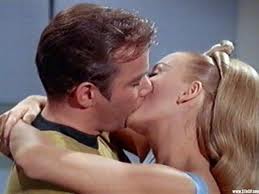 Speaking of science fiction, are you a fan of any science fiction series? Books, TV or movies?
Speaking of science fiction, are you a fan of any science fiction series? Books, TV or movies?
I’m a Trekkie all the way! Every series, although I have my favorites. I also enjoyed Firefly, Dr. Who, Battlestar Galactica (old and new).
What’s your next project? Will there be any books set in the Confederacy Treaty universe?
I am actually writing one more for The Confederacy Treaty Series, currently called Honor Bound. It wraps up this particular series, but I love the Inarrii – the aliens in my series – so I imagine that they will pop up in another book or two. After that I am planning on something entirely different, some non sci-fi work as Lilly Cain.
Your blog says you love coffee and chocolate, so night-owl or (ugh) morning person?
LOL!!! Night person for sure, I am only forcibly a morning person while my kids are home.
I’m always so happy to meet a fellow Trekkie! Lilly, you named all my loves, Trek, Firefly, the Doctor, wow! Galactica reboot, yes, first, not so much. I’ll be looking forward to revisiting the Inarii in Honor Bound.
Thanks so much for answering all my geeky questions.



